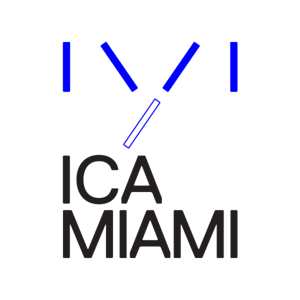July 16–28, 2018
61 NE 41st Street
Miami, Florida 33137
United States
Hours: Tuesday–Sunday 11am–7pm
hello@icamiami.org
Enroll now for ICA Miami’s Art + Research Center Summer Intensive, a two-week graduate-level education initiative exploring how urgent climate issues and anthropogenic effects apply pressure to contemporary cultural production.
The Institute of Contemporary Art, Miami (ICA Miami) convenes the second annual Art + Research Center (A+RC) Summer Intensive, which aims to address the ways in which urgent climate issues and anthropogenic effects apply pressure to contemporary cultural production. The 2018 semester runs July 16 through 28, and continues ICA Miami’s rigorous education and public programming through the Summer. The deadline to enroll is July 2. Admission is free to those who are accepted.
The Art + Research Center 2018 Summer Intensive encompasses three seminars ranging from very specific discussions related to Miami’s immediate conditions to more abstract probing around what it means to think and produce art on a planet that is rapidly changing. Summer Intensive visiting faculty include theorist and cultural producers from around the country and Miami. Among the faculty will be theorist Denise Ferreira da Silva, political ecologist Jason W. Moore, and artist and activist Rozalinda Borcila. Each seminar culminates in a free public lecture led by the visiting faculty.
Denise Ferreira da Silva
Seminar: July 16–20, 2–5pm
Public lecture: July 19, 7pm
Dr. Denise Ferreira da Silva’s academic writings and artistic practice address the ethical questions of the global present and target the metaphysical and onto-epistemological dimensions of modern thought. Currently, she is a Professor and Director of The Social Justice Institute (the Institute for Gender, Race, Sexuality, and Social Justice) at the University of British Columbia. Before joining UBC, she was an Associate Professor of Ethnic Studies, at the University of California, San Diego and, from 2010 to 2015, she held the inaugural chair in Ethics, at the School of Business and Management and the directorship of the Centre for Ethics and Politics, at Queen Mary University of London. Her research areas include Critical Racial and Ethnic Studies, Feminist Theory, Critical Legal Theory, Political Theory, Moral Philosophy, Postcolonial Studies, and Latin American & Caribbean Studies. Ferreira da Silva is regularly invited to participate in international events and to contribute to publications in academic and artistic settings.
Jason W. Moore
Seminar: July 23–27, 2–5pm
Public lecture: July 24, 7pm
Jason W. Moore is an environmental historian and historical geographer at Binghamton University, where he is professor of sociology. He is author or editor, most recently, of Capitalism in the Web of Life (Verso, 2015), Capitalocene o Antropocene? (Ombre Corte, 2017), Anthropocene or Capitalocene? Nature, History, and the Crisis of Capitalism (PM Press, 2016), and, with Raj Patel, A History of the World in Seven Cheap Things (University of California Press, 2017). His books and essays on environmental history, capitalism, and social theory have been widely recognized, including the Alice Hamilton Prize of the American Society for Environmental History (2003), the Distinguished Scholarship Award of the Section on the Political Economy of the World-System (American Sociological Association, 2002 for articles, and 2015 for Web of Life), and the Byres and Bernstein Prize in Agrarian Change (2011). He is chair (2017-18) of the Political Economy of the World-System Section (ASA), and coordinates the World-Ecology Research Network.
Rozalinda Borcila
Seminar: July 25–27, 10am–12:30pm
Off-site research trip: July 28, 9am–1pm
Public lecture: July 26, 7pm
Rozalinda Borcila’s artistic research traces local geographies of globalized racial finance. She makes videos, develops archives, writes and organizes learning walks to probe the machinery of capital circulation, to explore its metabolism and to experiment with possibilities for collective trespass. She is co-editor of the book Deep Routes: The Midwest in All Directions and the publication AREA Chicago: Art Research Education Activism. She collaborates with Compass, NoName Collective, and Moratorium on Deportations Campaign, and is committed to autonomous noborder activism. She teaches in universities, social centers, art institutions, squats, refugee camps and in the streets.



